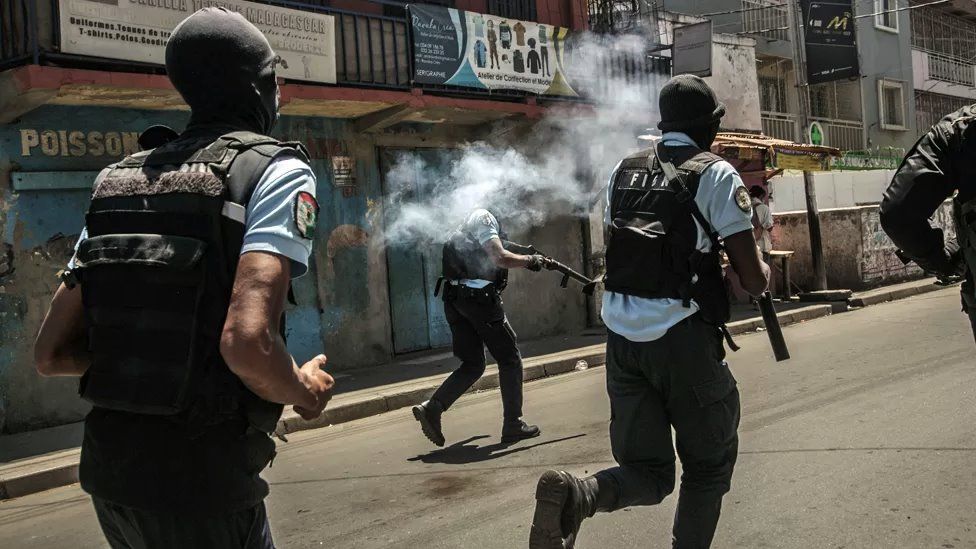-

-
-
Loading

Loading

Despite an opposition boycott and weeks of protests, Madagascar is proceeding with its presidential elections. A curfew has been imposed to maintain order. The opposition argues that the incumbent, Andry Rajoelina, should be disqualified, leading to heightened political tensions. Demonstrations have been ongoing for six weeks, resulting in clashes between opposition supporters and the police. The curfew was enforced due to various acts of sabotage, including the burning of a polling station. Opposition leaders claim that an institutional coup is in favor of Rajoelina, citing his acquisition of French nationality in 2014 as a disqualifying factor. Ten out of twelve opposition candidates have expressed concerns about the credibility of the elections and have urged voters to boycott. Cauliflowers have become symbols of police repression for opposition supporters, with even former President Marc Ravalomanana holding one while endorsing the boycott. Ravalomanana warns that if the election proceeds as planned, it will lead to a major crisis as the population will reject the results. Roland Ratsiraka, one of the protesting candidates, calls the elections a "fraud" and a "joke on Madagascar." The situation remains tense, with several injuries reported and the Red Cross providing aid to 36 people. Despite its reserves of valuable minerals such as cobalt, gold, nickel, and uranium, Madagascar remains one of the world's poorest countries, with 75% of the population living below the poverty line. The incoming president will face the challenge of addressing widespread poverty among other issues. Out of a population of approximately 30 million, only 11 million people are registered to vote. Polls opened on Thursday from 06:00 to 17:00 local time. Rajoelina, who officially resigned in September to run for re-election, has dismissed opposition criticism and is confident about his chances of winning. His government accuses the protesters of attempting to overthrow the government and sabotage the electoral process, warning that they are destabilizing the country. Initially, the president of the Senate was expected to succeed Rajoelina but declined, leading to the decision of a "collegial government" headed by the prime minister, perceived as an ally of Rajoelina. However, many are unhappy with Rajoelina's candidacy due to his dual French nationality. After assuming power in 2009, Rajoelina became the youngest head of state in Africa. Although he did not participate in the 2013 election, he was re-elected in 2018.